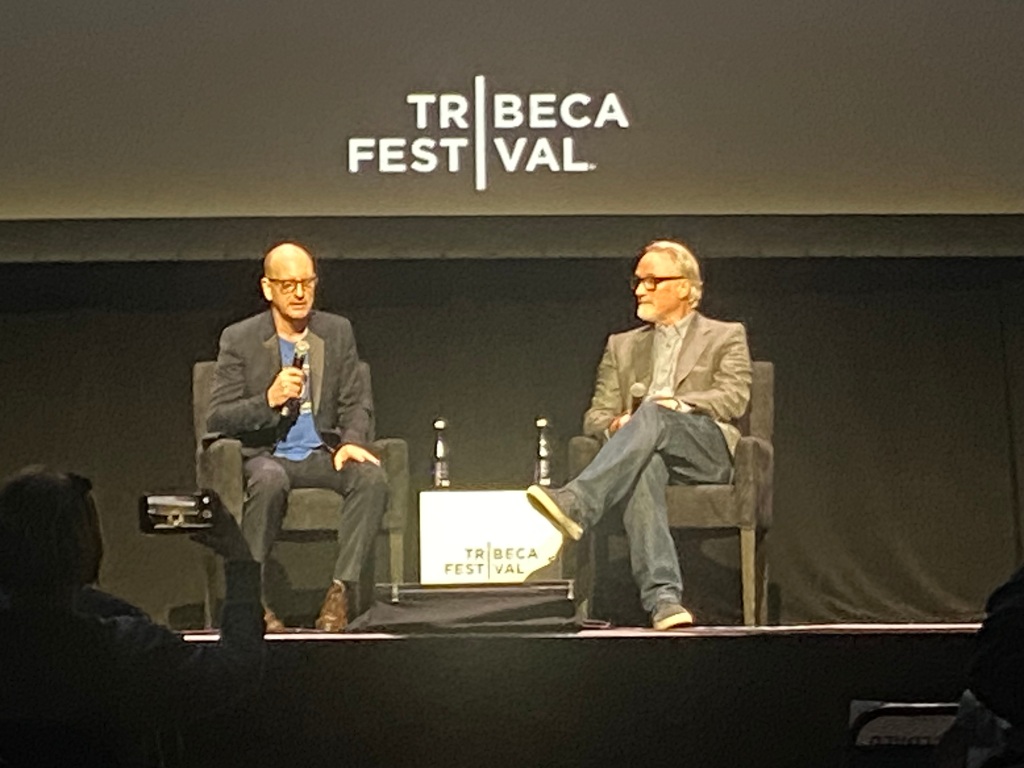
David Fincher said he’s not one to go back and re-watch his films. “I don’t. I’m not brave,” he said at the Tribeca Festival. “I’m fundamentally like, look, no, I can’t. It’s like looking at middle school pictures. I don’t want to even acknowledge that.”
“But I do find myself having to adjust, you know,” as remasters several of them, including Seven, he said during a Q&A, where the person asking the questions was his longtime friend and fellow acclaimed director Stephen Soderbergh. The two said they’ve been talking about twice a week for the past 20 years and regularly share their work in progress.
“There’s a lot of sh-t that needs to be fixed, because there’s a lot of stuff that we now can” fix, Fincher said of remastering “But I’m fundamentally against the idea of changing what it is.
“You can fix…if there’s something egregious that needs to be addressed. But, you know, I’m not going to take all the guns out of people’s hands and put flashlights in.”
Asked by Soderbergh what he considers the “fun part” of filmmaking, Fincher (Fight Club, The Social Network, Zodiac) said, “I love rehearsal. I love talking to people about the intention. I love haggling over every single word and what the script means and listening to people read it and hearing their ideas. I love casting. I love the casting process. I love designing the movie. I love sitting with, you know, the production designer, the director of photography, and, you know, talking about what do we want to say and where do we want people’s attention, and what are the things that we have to underline.”
“By the time it gets to the shooting…I find it to be unnecessary. I would much rather love to just workshop it and then have someone else take it over after all these conversations, and bring it home… But you’ve got to be there.”
He really loves a good montage, he said, when Soderbergh asked about one in particular, in Fight Club. “I love the montage because it’s you know, it’s pure cinema. It’s inference. It’s like, this goes against this, as quickly as we can possibly make a point and get the f-ck out of dodge.”
The two were also regaled with questions by aspiring filmmakers about compromise and weathering disappointment in an increasingly complicated landscape. Stick to it, Fincher said, noting that “It’s easier to make something now, something that looks really good, for not a lot of money. But it’s harder to get it seen. It’s harder to get bought.”
“When I started a long time ago, it was really hard to get the money to make something, even cheaply. Because film costs money. It was hard to make stuff cheap and look good. But if you did manage to do that you had a better shot at people actually seeing it or buying it.”
Monica has a BA in Journalism and English from the University of Massachusetts and an MS in Journalism and Communications from Quinnipiac University. Monica has worked as a journalist for over 20 years covering all things entertainment. She has covered everything from San Diego Comic-Con, The SAG Awards, Academy Awards, and more. Monica has been published in Variety, Swagger Magazine, Emmy Magazine, CNN, AP, Hidden Remote, and more. For the past 10 years, she has added PR and marketing to her list of talents as the president of Prime Entertainment Publicity, LLC. Monica is ready for anything and is proudly obsessed with pop culture.












